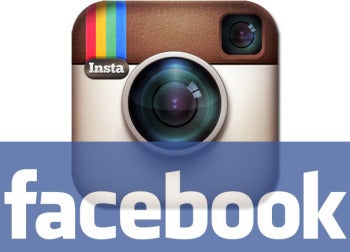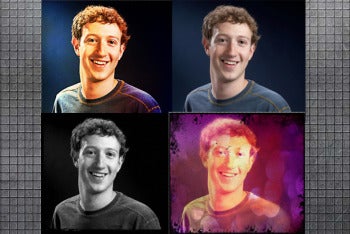
Facebook's purchase last week of Instagram, maker of a mobile photo-sharing app, for a staggering $1 billion dropped a lot of jaws everywhere, particularly among high tech pundits.
News of the deal sent a number of commentators to the ramparts waving red flags of danger, yellow flags of caution, or green flags of business as usual -- depending on the flag-waver's analysis of the arrangement.
Not only is the deal a sign of a high tech bubble, Bill Snyder writes in InfoWorld, but it's a sign that the big players in the industry are losing their innovative edge.
"If these events don't indicate the rise of a dangerous tech bubble, nothing does," he opines.
"The tech economy shows signs of moving away from the notion that real value is created by innovation," Snyder adds. "The Instagram deal is much like Google's $12.5 billion takeover of Motorola Mobility for its patent portfolio, a sign that big tech companies are more interested in playing financial and legal games than staying productive."
However, Andy Baio makes a persuasive case at Wired Online against the bubblistas. He conducted an informal analysis of some of the biggest high tech deals in the last ten years and concludes that the $28 a user Facebook was paying for Instagram's 35 million adherents was among the lowest in that data set.
He concedes, however, that the cost per employee of the deal -- $77 million -- is "off the charts." The median cost per employee of the deals analyzed by Baio was $3 million.
Rather than that number being a sign of a bubble, however, he argued that it's more a sign of the scalability of modern app architectures.
"Instagram's numbers are exactly what you'd want to see in a social network—high user counts with the lowest number of employees," he added. (PCWorld's Jared Newman compares Facebook's shopping trip to some other famous purchases.
Facebook and Instagram may be a symptom of a high tech bubble, but they're not the source of it; Ben Bernanke is, argues James Saft in a Reuters article.

"Twice since 1997 the Federal Reserve has eased policy in the wake of disruptions to financial markets and twice speculative bubbles have grown up in the aftermath," he writes. "It is looking increasingly as if social media technology shares are the third in the series."
Chris Dixon, co-founder of Hunch, a recommendation website recently scooped up by eBay for $80 million, casts doubt on the warnings of bubble alarmists.
"How many 'bubble' articles appeared after Google's acquisition of YouTube?" he asks in a tweet. "Turns out it was one the best acquisitions of the decade."
Some commentators suggest that the Instagram deal may be the pin that will prick what they see as an existing high tech bubble. But Dan Gillmor, writing for The Guardian, contends that the sale may further inflate the bubble with the help of Congress.
"The main reason is the recently passed Jobs Act that...is ostensibly designed to fuel entrepreneurship in America but which is at least as likely to promote corporate fraud," he writes. "Silicon Valley loves the law, but the scam artists of the world are surely salivating, too. When a flood of sleaze adds to a rising tide, all boats float higher -- for a time."
In order to have a bubble, companies need to be purchased at inflated prices. That isn't the case with the Instagram deal, tech guru Om Malik maintains, because it was crucial -- at least in Facebook's view -- to the company's future prospects, which includes a possible $100 billion Initial Public Offering later this year.
"Facebook was scared shitless and knew that for first time in its life it arguably had a competitor that could not only eat its lunch, but also destroy its future prospects," he writes. "Why? Because Facebook is essentially about photos, and Instagram had found and attacked Facebook's Achilles heel -- mobile photo sharing."
Bubble or no, a proliferation of billion dollar deals is unlikely, according to Gartner analyst Ray Valdes, who recently told The Telegraph: "The downturn and the last dot-com bubble will have a sobering effect. There are still some deep scars that have left lasting memories."
(See also "Instagram, Facebook Deal Sparks Privacy Concerns: Here's How to Quit.")
Follow freelance technology writer John P. Mello Jr. and Today@PCWorld on Twitter.
This entry passed through the Full-Text RSS service — if this is your content and you're reading it on someone else's site, please read the FAQ at fivefilters.org/content-only/faq.php#publishers. Five Filters recommends: Donate to Wikileaks.
No comments:
Post a Comment